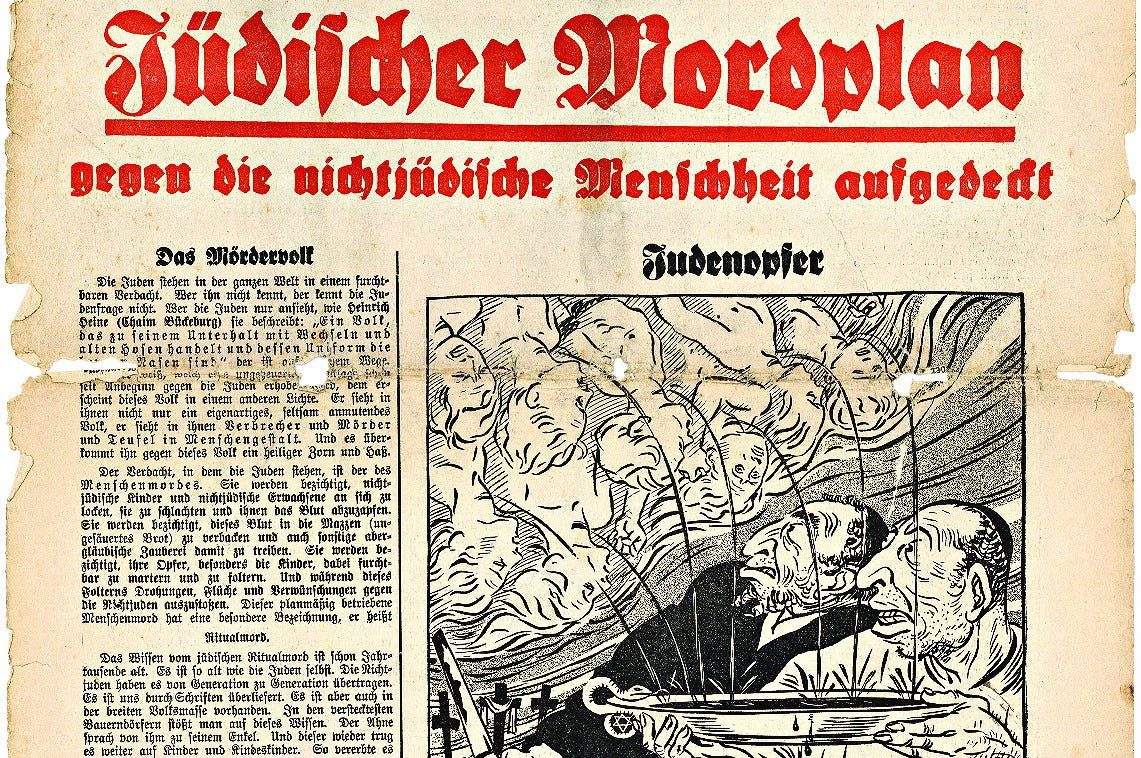Michael Oren: The Altneu Antisemitism: Part I

Thanks to Clarity with Michael Oren
The spike in antisemitism globally is hardly news. And yet, there is something about contemporary antisemitism that sets it apart from its earlier and even ancient versions
The spike in antisemitism globally, and most piercingly in the United States, is hardly news. Neither is the realization that the Jew-hated we now see all around us would have been readily recognizable to our forebears, that the reprieve from it we enjoyed in the decades after the Holocaust has ended, and that the world has simply reverted to form. And yet, there is something about contemporary antisemitism that sets it apart from its earlier and even ancient versions. The distinction dawned on me during an interview with a major American network, brought home by a young and otherwise courteous journalist, on the one-year anniversary of October 7.
“Israeli soldiers in Gaza are obviously seeking revenge,” she began. “Wouldn’t you agree?”
I didn’t. “No, they’re defending their families, their country, their homes.”
“But revenge does play a prominent role…”
“Understandably some of them are angry.” I tried to control myself but failed. “If someone broke into your home, nailed your sister’s legs apart, raped her, then shot her in the head. If that someone also burnt your parents to death in front of you and threw your younger brother into an airless tunnel for a year, beat and starved him, you might be a little angry, too.”
Yet she remained undeterred. “But vengeance is certainly a factor. How else can you explain the devastation? The 41,000 deaths? The women and children…”
Then, it struck me. The correspondent’s questions, though seemingly innocuous, were at base antisemitic. Not the you-killed-Christ type I grew up with in my working-class neighborhood or that of my preppie teammates in college for whom the very word “Jew” was a putdown. Her Jew-hatred was not the monkeys-and-pigs variety endemic to radical Islam, the Neo-Nazis’ “you won’t replace us,” or even the pro-Palestinian calls for a global intifada. No, hers was indicative of an entirely new strain—subtler, often subliminal, and alarmingly pervasive. Unwittingly, perhaps, the interviewer drew on timeless tropes and transformed them into unassailable truths. Hers was the Altneu antisemitism.
One such trope is that Jews, by nature and creed, are vengeful. By insisting that Jewish soldiers in Gaza are acting not in self-defense or even patriotism but out of sheer vindictiveness, my interviewer was reviving the classic claim that, in contrast to Christianity’s God of love, Jews worship a God of vengeance. That, and not the Jews’ ability to bleed like other humans, is the unifying theme of the Merchant of Venice, and a leitmotif in The Jew of Malta. Dramatically-speaking, the avenging Jew is a powerful engine. Just imagine how much juicier Les Misérables would have been if the Christian exemplar Jean Valjean had been hunted by Javert, an avenging Jew?
Was my interviewer aware of the Jew-hating roots of her questions? On the contrary, she’d almost certainly be shocked to hear that accusation and fervently deny it. That, in essence, is the Altneu antisemitism, a prejudice so deeply ingrained in public discourse that it passes unnoticed and inexorably becomes fact.
Other examples of the Altneu antisemitism abound, each incorporating its own hateful trope. An especially invidious one holds that Jews not only seek retribution, they enjoy exacting it. Behind the millennia-old myth (first mentioned by the Greco-Roman Jew-hater, Apion) of the blood libel, lies the belief in Jewish bloodlust.
A searing example of this slur occurred in May 2022, with the death of Al Jazeera reporter Shireen Abu Akleh. Shot during a clash between IDF forces and Palestinian terrorists in Jenin, Abu Akleh was among the nearly 2,700 journalists killed in combat since 1990, but the only one to be the subject of intense investigations by the New York Times, the Washington Post, and CNN. The United States, which refused to probe the deaths of foreign correspondents killed in the Iraq and Afghanistan Wars, gave into press and Congressional pressure to launch a special State Department inquiry. Far more insidiously than a mere double standard, these reactions reflected a belief that Israel purposely targeted Abu Akleh and other journalists operating in the West Bank. Which left the question: why? Not certainly to improve Israel’s image in the world or to deter the media from covering the conflict. Rather, Jewish soldiers killed Abu Akleh in retaliation for her critical reports on their actions. They shot her in the head—so the press implied—because it pleased them.
The accusation that Jews willfully kill reporters has become, during the Gaza war, a media assumption. The claim remains unchallenged despite the revelation that a number of the journalists who died were in reality Hamas terrorists. One of them, Abdullah Aljamal, imprisoned three Israeli hostages in his family house, while others—Al Jazeera correspondents Ismail Abu Omar and Muhammed Wishah—were close to Hamas’s senior leadership. AP photographer Ali Mahmud participated in the October 7 pogrom and, for his picture of murdered Israeli Shani Louk flung onto the back of a truck, won a prestigious international award. In one Gaza tunnel, Israeli soldiers found the Hamas files of no less than six Al Jazeera journalists.
Of course, this does not mean that the editors of America’s major news outlets, dozens of Congress Members, and the Secretary of State are all antisemites. It does, however, show how thoroughly and imperceptibly Jew-hatred can permeate the mainstream media and even the minds of decision-makers. Knowingly or not, they, too, are purveyors of the Altneu antisemitism.
The tropes, meanwhile, multiply. For a dismaying survey of them and their impact on Israel and the Jewish people, read Part II of the Altneu Antisemitism coming soon.









